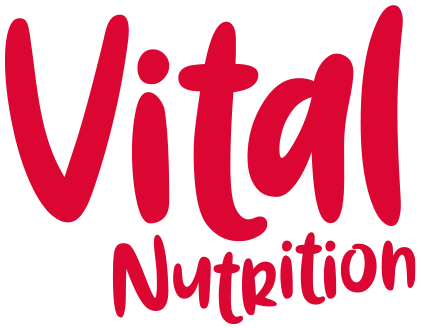Reset your mindset
Celebrations, parties and gatherings can throw you off track. That is, if you view your nutrition as a diet. When you take a different look at things, these events are a chance to celebrate with family and friends. They are a normal part of life, even if they are not everyday occurrences.
So often I talk to people who tell me that they went off the tracks, their diet has gone to pot, or they will start again on Monday. When you change your mindset around food, diet and nutrition, it gives you the freedom to enjoy the occasional treat without feeling guilty, yo-yo dieting, or having to do a total reset every time you eat something you ‘shouldn’t’.
When we look at food as a way to nurture and nourish ourselves, rather than something that should be cut back on, avoided or eaten in secret, we have a healthier relationship with food and tend to make better choices - not because we are on a diet, but because the healthier stuff just makes us feel better.
Unfortunately society has us all brainwashed into thinking that healthy eating is found in low fat foods, protein boosted yoghurts or by subscribing to a diet plan. The reality is that good nutrition is all about balance.
Food is an important part of life. We use it to celebrate or commiserate. Whether for birthdays, holidays or the gathering of friends, food is central to our social gatherings.
If most of our diet is made up of nutritious food, then we should not feel mad, bad or sad about the occasional food or meal that doesn’t conform to the norm, or adhere to whatever diet we are on.
Here are some simple ways to help reset your mindset around good food.
Eat mindfully. Connect with your senses. When we eat more mindfully, we tend to make better choices and need less to feel more satisfied. Notice how your food looks, smells, tastes or even sounds. Slow down a little and always sit at a table to eat your meals.
Cook more. This doesn’t have to mean spending hours slaving over a hot stove. Simple meals that can be prepared quickly are great. The more we cook, the better our nutrition. Homecooked food is lower in fat, sugar, salt and free from unnecessary additives and preservatives. Time and again, research shows that people who cook more eat tend to have a lower calorie intake and lower BMI and body fat percentage.
Notice how your food makes you feel. Sometimes we need to take a step back to see how our everyday habits affect us. I recently had a client who put her focus on noticing where sugar was sneaking into her diet through foods like cereals, sauces and ready meals. When she started to cut back, she really noticed that sugar was ,making her energy levels slump in the afternoon. Once she was more mindful about her sugar intake, her energy improved and she had reason to be motivated to cut back on sugary stuff. Not because of weight loss, but because of how it made her feel. The welcome side effect for her was that she also lost weight.
Get organised. Most of us have good intentions to eat well, but when we get hungry or ‘hangry’, we can get swayed by junk food, sugar and less healthy food choices. Get into the habit of cooking enough for a couple of meals – a salad box for lunch today and tomorrow; leftovers for dinner another day or maybe a batch of healthier snacks for when the munchies strike.
Count nutrients not calories. Are you getting your 5 a day? Do you choose high fibre foods (6g or more per 100g on the food label)? Do you get a portion of protein at each meal? Are you eating healthy fats most days? Simple habits to optimise your nutrition will make you feel more positive about your food choices.
Eat more! More fruit, more veg, more fibre, more healthy fats, more protein, more herbs and spices, more variety…

